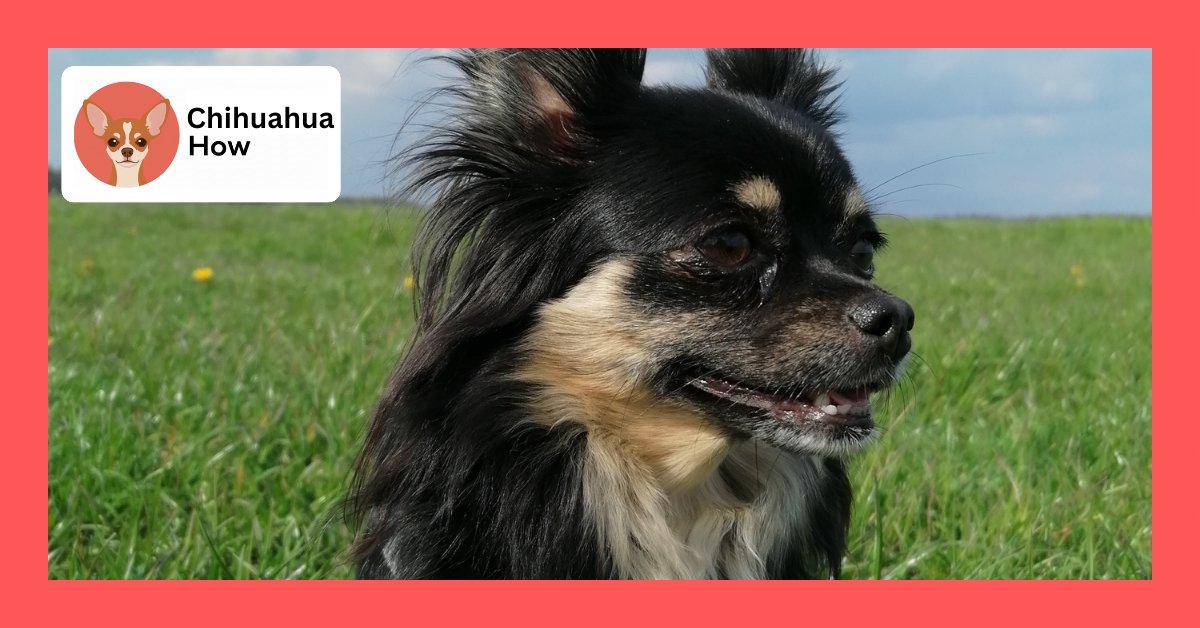Are you considering a Chihuahua as your first dog? You’re not alone – surveys show that Chihuahuas rank among the top toy breeds chosen by first-time dog owners in 2024-2025. Their compact size and apartment-friendly nature make them seem like the perfect starter pet.
Is a Chihuahua a good first dog? Yes, Chihuahuas can make excellent first dogs for the right owners. They’re low-maintenance in grooming, adaptable to small spaces, and form deep bonds with their families. However, success depends on understanding their unique needs for consistent training, early socialization, and gentle handling due to their fragile size.
While these tiny companions offer many benefits for novice owners, they also present specific challenges that require preparation and commitment. According to Dr. Duncan Houston’s 2025 veterinary guidance, Chihuahuas thrive as first dogs when owners are “intentional about handling” and invest in proper training from day one.
Why Chihuahuas Appeal to First-Time Dog Owners
Chihuahuas possess several characteristics that make them attractive to new dog parents. Their small stature means they fit comfortably in apartments, condos, and tiny homes where larger breeds might struggle.
These dogs require minimal grooming compared to other breeds. A weekly brush and occasional bath keep their coat healthy. Their exercise needs are modest – often satisfied by indoor play sessions and short walks around the block.
Chihuahuas also have impressive lifespans, typically living 12-16 years with proper care. This longevity allows first-time owners to build a lasting relationship with their pet while gaining valuable experience.
Size Advantages for New Owners
The compact size offers practical benefits beyond space requirements. Food costs remain low, and transportation becomes easier whether you’re moving apartments or traveling. Veterinary costs for routine procedures are often reduced compared to larger breeds.
However, this small size also demands careful consideration of safety factors that first-time owners must understand.
The Reality Check: Chihuahua Challenges for Beginners
Despite their appeal, Chihuahuas present unique challenges that can overwhelm unprepared first-time owners. Understanding these potential issues helps you make an informed decision.
Temperament and Behavior Considerations
Chihuahuas are known for their strong personalities. They’re naturally protective, which can translate into excessive barking if not properly managed. Many first-time owners underestimate how vocal these dogs can be.
The breed tends toward separation anxiety, especially when bonded closely with one family member. Without proper training, this can lead to destructive behaviors when left alone.
According to 2024 Sniffspot survey data from over 9,000 Chihuahua owners, trainability rates as “moderate,” with professional guidance often recommended for optimal results.
Health and Safety Vulnerabilities
Chihuahuas face specific health risks due to their size:
- Fragile bones prone to fractures from falls or rough handling
- Susceptibility to cold weather requiring protective clothing
- Dental disease requiring daily tooth brushing
- Risk of obesity leading to joint problems
- Patellar luxation (kneecap dislocation)
First-time owners must commit to gentle handling and consistent health monitoring to prevent these issues. For more detailed information about how Chihuahuas handle cold weather, understanding their temperature sensitivity is crucial for proper care.
Essential Training Requirements for First-Time Chihuahua Owners
Success with a Chihuahua as your first dog heavily depends on establishing proper training routines from the beginning. These dogs respond well to positive reinforcement but require consistency and patience.
How to Start Training Your Chihuahua
- Begin immediately: Start basic commands and house training the day your puppy arrives
- Use positive reinforcement: Reward good behavior with treats, praise, and play
- Establish routines: Consistent feeding, potty breaks, and exercise schedules
- Focus on socialization: Expose your puppy to various people, sounds, and environments safely
- Address barking early: Teach the “quiet” command before excessive vocalization becomes habitual
- Practice gentle handling: Get your dog comfortable with being picked up and examined
Professional trainers emphasize avoiding intimidation or harsh discipline, which can damage the owner-dog bond and create fear-based aggression. For specific training techniques, consider exploring scent tracking training for Chihuahuas to provide mental stimulation and strengthen your bond.
Socialization: Critical for Success
Proper socialization prevents many behavioral problems that plague poorly socialized Chihuahuas. Early exposure to different people, pets, and environments helps create a well-balanced adult dog.
Improperly socialized Chihuahuas often develop reactive behaviors or nervous aggression, making them challenging for first-time owners to manage. If you’re considering a multi-pet household, learning about Chihuahuas and cats living together can help ensure successful integration.
Is a Chihuahua Right for Your Lifestyle?
Determining if a Chihuahua suits your lifestyle requires honest assessment of your living situation, experience level, and commitment to training.
| Lifestyle Factor | Good Fit | Poor Fit |
|---|---|---|
| Living Space | Apartments, condos, small homes | Requires large yard space |
| Exercise Needs | Prefers light activity, indoor play | Wants high-energy hiking companion |
| Family Situation | Adults, older children, seniors | Young children under 8 years |
| Time Commitment | Can dedicate time to training/socialization | Limited time for consistent training |
| Experience Level | Willing to learn and seek guidance | Expects a “low-maintenance” pet |
Red Flags: When to Consider Other Breeds
Certain situations make Chihuahuas less suitable as first dogs. Households with very young children pose risks due to the breed’s fragility and potential for defensive behavior.
If you’re seeking a completely hands-off pet experience, Chihuahuas aren’t ideal. They require mental stimulation, social interaction, and consistent care despite their small size.
2025 Expert Recommendations for First-Time Chihuahua Owners
Recent veterinary guidance emphasizes several key strategies for success with Chihuahuas as first dogs. Technology integration is becoming increasingly important for safety and management.
Modern Safety Solutions
GPS collars and smart fencing systems help protect these tiny dogs who can easily slip through small gaps or be targeted by predators. Remote monitoring allows first-time owners to check on their pets during work hours.
Many 2025 recommendations focus on preventing common first-owner mistakes through structured approaches and realistic expectations.
Health Prevention Strategies
Dr. Duncan Houston’s 2025 guidance emphasizes vigilant weight management and regular veterinary checkups. Early intervention prevents many breed-specific health issues from becoming serious problems.
Daily dental care, appropriate nutrition, and temperature regulation form the foundation of Chihuahua health management for new owners.
Real Owner Experiences: Lessons from the Field
According to 2024 community reports, most Chihuahua owners love their dogs’ devotion and adaptability. However, first-time owners frequently report being unprepared for certain challenges.
Common positive outcomes include strong bonding, apartment-friendly companionship, and relatively low exercise demands. Successful first-time owners typically invested in early training and maintained realistic expectations.
Pain points often involve potty training difficulties due to small bladder size, managing excessive barking, and preventing “small dog syndrome” where lack of boundaries creates behavioral problems.
Making Your Decision
A Chihuahua can be an excellent choice for your first dog if you’re committed to proper training, socialization, and care. Their loyalty, adaptability, and compact size offer genuine advantages for many new dog owners.
Success requires understanding that “small” doesn’t mean “easy.” These dogs need consistent training, gentle handling, and ongoing socialization to thrive. Is a Chihuahua a good first dog for you? The answer depends on your willingness to meet their specific needs.
Consider your lifestyle honestly, research reputable breeders or rescue organizations, and prepare for a 12-16 year commitment. With proper preparation and realistic expectations, a Chihuahua can become your perfect first canine companion.
Frequently Asked Questions
Are Chihuahuas hard to train for first-time owners?
Chihuahuas have moderate trainability and respond well to positive reinforcement methods. While they can be strong-willed, consistent training from puppyhood prevents most behavioral issues. First-time owners often benefit from professional guidance to establish effective routines early.
Do Chihuahuas bark a lot?
Yes, Chihuahuas are naturally vocal dogs with strong protective instincts. However, excessive barking can be managed through early training and proper socialization. Teaching the “quiet” command and addressing triggers helps control vocalization effectively.
Are Chihuahuas good with children?
Chihuahuas work best with older children who understand gentle handling. Their small size makes them vulnerable to accidental injury from young children. Families with kids under 8 should consider larger, more robust breeds for safety.
How much exercise do Chihuahuas need daily?
Chihuahuas need about 20-30 minutes of light exercise daily, often satisfied through indoor play and short walks. Their exercise requirements are much lower than larger breeds, making them suitable for apartment living and less active owners. You might be surprised to learn about whether Chihuahuas will play fetch as part of their exercise routine.
What health problems do Chihuahuas commonly face?
Common health issues include dental disease, patellar luxation, obesity, and bone fractures due to their fragile size. Regular veterinary care, daily dental hygiene, weight management, and careful handling prevent most problems.
How long do Chihuahuas typically live?
Chihuahuas have impressive lifespans of 12-16 years with proper care. Their longevity allows first-time owners to build lasting relationships while gaining valuable dog ownership experience over many years.
Should I get a Chihuahua puppy or adult as my first dog?
Both options work for first-time owners. Puppies allow you to establish training from the beginning but require more time and patience. Adult Chihuahuas may have established behaviors but often come with known temperaments and completed house training.

